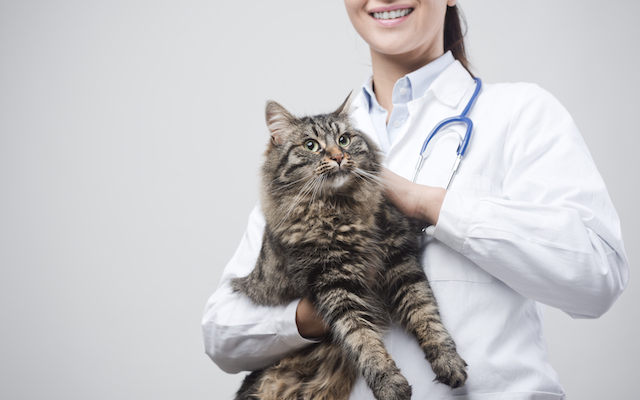Physical Address
304 North Cardinal St.
Dorchester Center, MA 02124
Physical Address
304 North Cardinal St.
Dorchester Center, MA 02124

We understand how important your senior feline buddy is to you. Here are some typical health issues to look out for in your adult feline pal!
One of the benefits of cats is that they age slowly, so it may be difficult for us to recognize that they are getting older and developing some of the frequent health concerns associated with old age. Though some issues are unavoidable with age, you and your veterinarian may collaborate to help your cat stay as happy and content as possible for as long as feasible. Here are some of the most frequent health conditions encountered in elderly cats, as well as recommendations for how to treat them.
According to feline veterinary specialist Dr. Arnold Plotnick, research reveal that 90% of cats over the age of 12 have radiographic evidence of arthritis. Arthritis may be the culprit if your cat no longer likes to go up or down stairs or jump on or off furniture, has difficulty grooming himself, pees outside the litterbox because it’s tough for him to climb inside, or appears stiff after standing up. If you observe any of these symptoms, consult your veterinarian about ways to help your cat feel better.
According to Dr. Heather Wilson, assistant professor of oncology at Texas A&M University’s College of Veterinary Medicine and Biomedical Sciences, 30% of all cats over the age of 10 will be diagnosed with some kind of cancer. Lymphosarcoma is one of the most prevalent types of cancer in cats. If you detect any of the following symptoms, take your cat to the vet right away: Unintentional weight loss or appetite loss; lumps or bumps that grow in size, sores that do not heal, or bleeding or other discharge from the mouth, nose, or anus; unusual body odor, lack of energy, difficulty eating or swallowing, unexplained lameness that does not improve; or difficulty breathing, urinating, or defecating
Is your cat having difficulty chewing — or picking up and dropping his food? He could have painful periodontal disease, which is typical in elderly cats. Plaque and tartar can accumulate significantly over time, particularly if teeth are not brushed or professionally cleaned on a regular basis. Plan a thorough cleaning, and then brush your cat’s teeth every day to help keep them clean. Keeping your cat’s teeth and gums clean is a vital part of keeping him healthy.
Eye issues that can afflict older cats include cataracts, glaucoma, and retinal detachment. Check for cloudiness or whiteness of the lens, overall cloudiness of the eye, dilated pupils, and, of course, bumping into objects. Depending on the nature and severity of the problem, medication may be beneficial. Cataracts can be surgically removed, but cats use their sense of smell so efficiently that it is rarely necessary. Just remember not to move the furniture or he’ll hit his head.
Even with cats, the sense of hearing deteriorates with age; it’s an unfortunate reality of life. You can’t buy hearing aids for your cat just yet, but you can communicate with him. Teach him hand signals, stamp your foot so he feels the vibrations and knows you’re there, or walk to him to let him know it’s dinnertime. He’ll be grateful.
Though it may appear to be a good thing, an increase in energy and an increase in hunger could be signs that your senior cat has hyperthyroidism, a condition in which the thyroid gland produces significantly more thyroid hormone than necessary. Cats with hyperthyroidism are also predisposed to hypertension, which can lead to kidney failure or heart disease if left untreated. If you suspect your cat has hyperthyroidism, make an appointment with your veterinarian for blood work and to discuss treatment options.
One of the most prevalent ailments veterinarians see in geriatric cats is kidney failure. Starting early in your cat’s golden years with regular geriatric checkups might boost the likelihood of early discovery and correct management of any failing kidney function. Though kidney failure is not reversible, in many situations, a therapeutic diet, subcutaneous fluid treatment, and occasionally medicine and certain vitamins can help control the illness and extend your cat’s life by months or years.